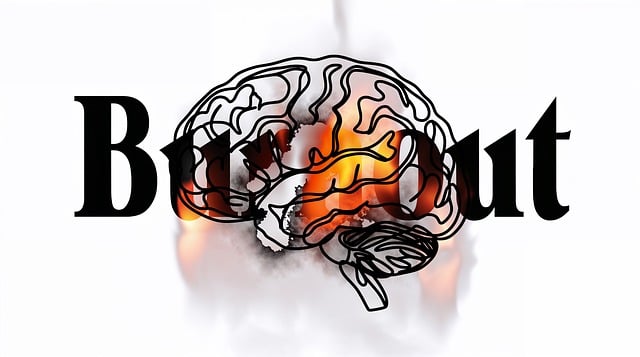Media portrayal significantly shapes public perceptions of mental health, with accurate representations fostering understanding and positive help-seeking behaviors, while negative portrayals can perpetuate stereotypes and deter open discussions. To address this, advocating for responsible media coverage that reflects the complexity of mental health experiences is crucial. Initiatives like Englewood Anger Management Therapy demonstrate the power of depicting effective treatments in media, challenging stereotypes, and promoting empathy. Collaborative efforts between media creators, healthcare providers, and individuals with lived experiences ensure authentic and nuanced portrayals, contributing to a more supportive societal environment for those facing mental health challenges.
Mental illness representation in media plays a pivotal role in shaping societal perceptions and understanding. This article delves into the profound impact of media portrayal on mental health, exploring both its current state and potential challenges. We analyze how media often misrepresents mental illnesses, reinforcing stereotypes that can lead to stigmatization. The focus then shifts to effective strategies for promoting accurate representation, highlighting the positive impact of initiatives like Englewood Anger Management Therapy. This case study demonstrates a successful model for challenging stereotypes through therapy and support groups.
- Understanding the Impact of Media Portrayal on Mental Health Perceptions
- Exploring the Current State: How Media Reflects (and Misrepresents) Mental Illness
- The Role of Therapy and Support Groups in Challenging Stereotypes
- Effective Strategies for Promoting Accurate Mental Illness Representation
- Case Study: Englewood Anger Management Therapy as a Model for Positive Change
Understanding the Impact of Media Portrayal on Mental Health Perceptions

Media portrayal significantly shapes public perceptions about mental health. The way mental illnesses are depicted in movies, television shows, and news articles can influence how society understands and treats individuals struggling with these conditions. Often, media representations oversimplify or sensationalize mental illness, leading to misconceptions and stigma. This is particularly concerning as media has the power to either promote understanding or perpetuate harmful stereotypes.
For instance, positive portrayals of therapy, such as those showcasing effective treatment options like Englewood Anger Management Therapy, can encourage individuals to seek help. Conversely, negative representations may discourage people from discussing their mental health issues openly. Therefore, it’s crucial to advocate for accurate and nuanced media coverage that reflects the complexity of mental health experiences while promoting confidence boosting, inner strength development, and self-esteem improvement for those affected.
Exploring the Current State: How Media Reflects (and Misrepresents) Mental Illness

The media plays a significant role in shaping societal perceptions about mental illness, often reflecting and sometimes misrepresenting the realities of various disorders. In recent years, there has been a growing awareness of the need for more accurate and nuanced portrayals in film, television, and other forms of media. Currently, many media platforms still rely on stereotypes or sensationalize mental health issues, contributing to stigma and misconceptions among the general public. This is particularly evident when depicting conditions like anxiety, depression, or even more complex disorders such as schizophrenia. Often, characters with mental illnesses are portrayed as dangerous or unpredictable, leading to a fear-based perception rather than empathy and understanding.
However, there is a positive shift towards more responsible representation. Shows and movies that incorporate mental health themes with sensitivity and accuracy can educate viewers and encourage open conversations. For instance, exploring the journey of an individual managing anger through therapy, like Englewood Anger Management Therapy, on screen could provide valuable insights into effective treatment approaches. This shift requires collaboration between media creators, healthcare providers, and cultural competency training for all parties involved. By ensuring accurate portrayals, especially in high-risk management planning for mental health professionals, emotional regulation strategies can be better understood and implemented, ultimately fostering a more supportive societal environment for those struggling with their mental health.
The Role of Therapy and Support Groups in Challenging Stereotypes

Representations of mental illness in media often perpetuate harmful stereotypes, contributing to stigma and misunderstanding. This is where therapy and support groups play a pivotal role in challenging these negative portrayals. Through structured sessions, individuals struggling with mental health issues can access evidence-based practices like Englewood Anger Management Therapy, which focuses on coping skills development and inner strength development. These therapeutic approaches empower individuals to manage their conditions effectively while fostering healthy communication strategies among peers.
Support groups further complement therapy by offering a safe space for sharing experiences, where members learn from one another. This collective approach not only promotes understanding but also encourages the adoption of positive behaviors, challenging outdated stereotypes associated with mental illness. By combining professional therapy with peer support, we can create a more inclusive and empathetic society that recognizes the complexity and resilience inherent in human experience.
Effective Strategies for Promoting Accurate Mental Illness Representation

Promoting accurate mental illness representation in media is a multifaceted challenge that requires deliberate strategies. One effective approach is to involve individuals with lived experiences as consultants, ensuring stories are told from authentic perspectives. This practice, seen successfully implemented through initiatives like Englewood Anger Management Therapy, enriches narratives and prevents stereotypes. Additionally, integrating professional guidance during production can help avoid misrepresentations and ensure sensitivity.
Risk Management Planning for Mental Health Professionals plays a crucial role in this process by establishing guidelines for handling sensitive topics. Emotional Well-being Promotion Techniques, such as Self-Awareness Exercises, can empower both creators and audiences to understand the nuances of mental health struggles. These collaborative efforts not only foster more empathetic storytelling but also contribute to a broader culture that prioritizes mental health awareness and accurate representation.
Case Study: Englewood Anger Management Therapy as a Model for Positive Change

Englewood Anger Management Therapy stands as a compelling example of how targeted interventions can bring about positive change in mental illness representation. This innovative program focuses on anger management, a common struggle often portrayed negatively in media. By offering a structured and supportive environment, it challenges stereotypical narratives and promotes understanding. The therapy model emphasizes the importance of emotional regulation, teaching participants healthy coping mechanisms to manage anger effectively.
This approach not only benefits individuals struggling with anger but also contributes to broader mental wellness. The success of Englewood Anger Management Therapy can inspire similar initiatives, especially considering the growing demand for accessible stress reduction methods. Through such programs, media representation of mental health can evolve, showcasing recovery stories and effective treatment options while fostering a more supportive societal narrative around emotional regulation.
In conclusion, the article has explored the profound impact of media portrayal on perceptions of mental health and the urgent need for accurate representation. By examining current trends and the role of therapy and support groups, it’s evident that challenging stereotypes is a collaborative effort. Effective strategies, such as those implemented by Englewood Anger Management Therapy, demonstrate that positive change is achievable through innovative approaches. Moving forward, embracing diverse narratives and fostering understanding can lead to a more inclusive and supportive society for individuals living with mental illness.














